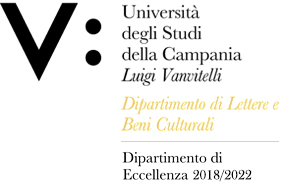Federico PAOLINI
Insegnamento di STORIA DELLA GLOBALIZZAZIONE
Corso di laurea magistrale in FILOLOGIA CLASSICA E MODERNA
SSD: M-STO/04
CFU: 6,00
ORE PER UNITÀ DIDATTICA: 30,00
Periodo di Erogazione: Secondo Semestre
Italiano
| Lingua di insegnamento | Italiano |
| Contenuti | Titolo del corso: "L'Antropocene: una rilettura della grande accelerazione". |
| Testi di riferimento | Federico Paolini. Ambiente. Una storia globale (secoli XX-XXI), tab edizioni, Roma 2020. Capitoli I, II, III. |
| Obiettivi formativi | Conoscenze e abilità da acquisire: |
| Prerequisiti | E' richiesta la conoscenza generale della storia contemporanea dalle rivoluzioni settecentesche all’inizio del XXI secolo. |
| Metodologie didattiche | Lezioni seminariali, materiali in Powerpoint. |
| Metodi di valutazione | Relazione scritta il cui contenuto verrà poi discusso in un colloquio orale. |
| Programma del corso | I fattori del cambiamento ambientale: dalla rivoluzione neolitica all'età moderna; la questione dell'antropocentrismo; la prima metà del XX secolo; l'avvio della grande trasformazione 1950-1985; gli anni della globalizzazione 1986-2009; il tempo presente |
English
| Teaching language | Italian language |
| Contents | Course title: "The Anthropocene: a reinterpretation of the great acceleration". |
| Textbook and course materials | Federico Paolini. Ambiente. Una storia globale (secoli XX-XXI), tab edizioni, Roma 2020. Chapters I, II, III. |
| Course objectives | Knowledge and abilities: |
| Prerequisites | The general knowledge of contemporary history from the eighteenth-century revolutions to the beginning of the XXI century. |
| Teaching methods | Lectures, Powerpoint materials. |
| Evaluation methods | Written report whose content will then be discussed in an oral interview. |
| Course Syllabus | The factors of environmental change: from the Neolithic revolution to the modern age; the question of anthropocentrism; the first half of the twentieth century; the start of the great transformation 1950-1985; the years of globalization 1986-2009; the present time |








